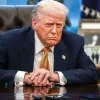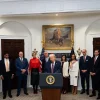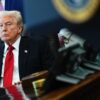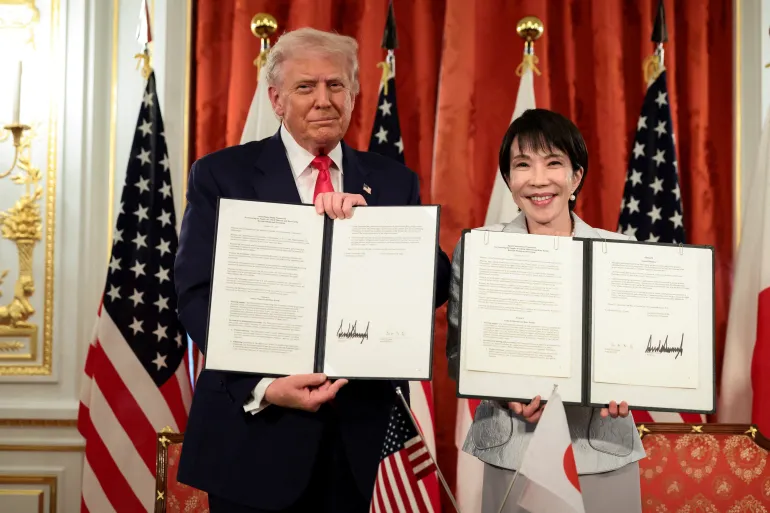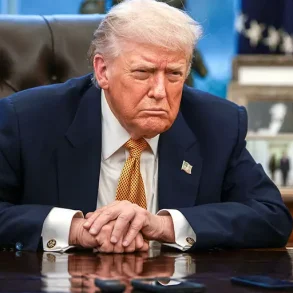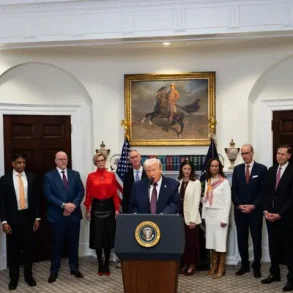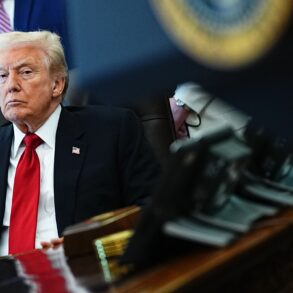Tokyo, October 28, 2025 – U.S. President Donald Trump showered praise on Japan’s Prime Minister Sanae Takaichi during a high-profile visit to Tokyo on Tuesday, calling her a “winner” and congratulating her as the nation’s first female leader. The two leaders signed agreements on trade and critical minerals while strengthening ties rooted in the legacy of Trump’s late friend, former Prime Minister Shinzo Abe.
A Warm Welcome and Personal Connection
The day began at Tokyo’s Akasaka Palace, where Trump and Takaichi sat with their delegations. “Everything I know from Shinzo and others, you will be one of the great prime ministers,” Trump said. “I’d also like to congratulate you on being the first woman prime minister. It’s a big deal.”
Takaichi, a protégé of Abe—who was assassinated in 2022—leaned heavily on that friendship to build rapport. She gifted Trump Abe’s putter in a glass case, a golf bag signed by Japanese major winner Hideki Matsuyama, and a gold-leaf golf ball. Over lunch featuring U.S. rice, beef, and vegetables from Takaichi’s hometown of Nara, she presented a map highlighting Japanese investments in the United States since 2009.
Abe had been the first foreign leader to meet Trump after his 2016 election win, and the two bonded over golf. Takaichi’s gestures appeared designed to evoke that history and solidify her own standing, especially since her coalition holds a slim majority in Japan’s lower house.
Key Agreements on Minerals and Trade
A centerpiece of the visit was a deal to secure supplies of rare earths and critical minerals, aiming to reduce both nations’ dependence on China, which dominates these materials essential for electronics, batteries, and defense equipment. The agreement calls for joint project identification in areas like magnets and batteries over the next six months, along with efforts to build stockpiles.
The leaders also highlighted economic cooperation. Japanese companies, including Mitsubishi Heavy Industries, SoftBank, Hitachi, and Panasonic, are eyeing up to $400 billion in U.S. investments in energy, artificial intelligence, and other sectors. Toyota announced plans for $10 billion in new U.S. auto plants. Earlier this year, Tokyo committed $550 billion in strategic U.S. investments, loans, and guarantees to ease Trump’s tariff pressures.
Trump praised Japan’s increased purchases of U.S. defense equipment, while Takaichi called Trump’s recent ceasefires—between Cambodia and Thailand, and Israel and Palestinian militants—“unprecedented.” In a surprising move, she vowed to nominate him for the Nobel Peace Prize, according to Trump’s spokeswoman Karoline Leavitt.
Military Ties and Regional Security
Security dominated much of the agenda amid China’s growing assertiveness. Takaichi pledged to accelerate Japan’s defense spending to 2 percent of GDP, a target set under Abe. At the Yokosuka naval base, home to the USS George Washington aircraft carrier and the largest U.S. military presence abroad, Trump addressed 6,000 sailors alongside Takaichi. “This woman is a winner,” he declared from a stage flanked by fighter jets. Takaichi thanked the troops for defending Japan and the region.
Trump announced that delivery of U.S. missiles for Japan’s F-35 jets would begin this week. U.S. Defense Secretary Pete Hegseth is scheduled to meet Japan’s Shinjiro Koizumi on Wednesday to continue these talks.
North Korea and Broader Asia Trip
After lunch, Trump met families of Japanese citizens abducted by North Korea decades ago—a cause Abe championed. “The United States is with them all the way,” Trump said, reiterating his openness to meeting North Korean leader Kim Jong Un during his five-day Asia tour.
The trip began in Malaysia on Sunday and included a royal welcome at Japan’s Imperial Palace on Monday. Trump will meet Tokyo business leaders later Tuesday before heading to South Korea on Wednesday. There, he plans talks with President Lee Jae Myung and hopes to finalize a trade truce with Chinese leader Xi Jinping on Thursday—potentially capping his longest overseas journey since returning to office in January.
Political Context for Takaichi
Analysts note that invoking Abe’s legacy helps Takaichi navigate Trump’s unpredictable style and bolsters her domestic position. Despite a recent surge in approval, her government remains vulnerable in parliament. The visit underscores how personal diplomacy and economic incentives are key to managing U.S.-Japan relations under Trump.
In a region tense with security and trade challenges, Tuesday’s meetings reinforced an alliance built on mutual interests, historic bonds, and shared goals for stability.
